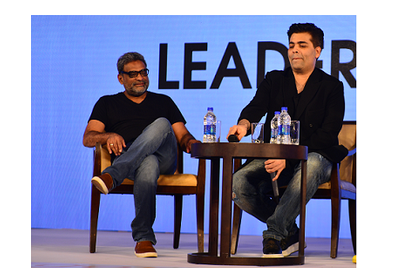
FICCI Frames, the annual media and entertainment forum, has unveiled the theme - 'A Tryst with Destiny – Engaging a Billion Consumers' - for this year's edition of the event. The industry forum will be held from March 12-14, 2013 in Mumbai.
Speaking about the growth of FICCI Frames as an annual event, Uday Shankar, chief executive officer, Star India and chairman of FICCI media and entertainment committee said, “In its fourteenth year, FICCI Frames has become a platform for everybody around the world to come together and share views, raise issues, debate on growth prospects – all under one roof.”
"The next phase of FICCI Frames will focus on ensuring that the media and entertainment industry make the next big leap as far as growth is concerned. Keeping that in mind, we’ve decided to keep this year’s theme as A Tryst with Destiny - Engaging a Billion Consumers’. While this is the focus for this year’s Frames, it could also be a guiding focus for the next several years if we see the media and entertainment sector taking the next big leap," he added.
Talking about the state of Indian media and entertainment sector, he said, "In the last 10-15 years, the media and entertainment industry of India has scripted a tremendous growth story. There is still a gap in our ability to monetise the engagement and use the resources generated to advance both access and content."
Shankar observed that there was still a lot to achieve across domains of the industry - be it television, films, radio, or digital. “Fifteen years ago, the business of Bollywood was a fraction of what it is today, in terms of size. Today we see a thousand films releasing in a year’s time, but I feel Bollywood as an industry still remains smaller and that there is still a long way to go. Television was a very small business. Radio was very nascent. The newspaper as an industry was small in size terms. There was nothing like new media,” he recalled.
On how the progress of radio has been over the past 15 years, he noted that the medium is more of a phenomenon in the big cities. “From a standpoint of content, radio as a medium has a lot more to offer. It’s still in its infancy as far as content is concerned – even in the big cities.” On TV’s reach, Shankar noted that there were about 125 million households that do not have a TV connection even today, which marks a great opportunity of expanding the medium’s reach in the country.
“If we deliver to our promises, this country will see a significant growth as far as media and entertainment is concerned. The opportunity is there in front of us to generate much larger scale of employment and a chance contribute to the country economy in a positive manner,” he observed.
Karan Johar, co-chair, FICCI Frames, added, “The media and entertainment industry has the potential to become the catalyst for social change and a force of good for every niche of society. FICCI Frames has been the most eminent platform and its initiatives over the past decade have improved the quality of content generation, skill development and stature of the industry. We believe that our new agenda will be the change agent for social and commercial development, connecting a billion people.”
Shankar pointed out the need to initiate further talks with the Government of India on contribution of the industry in terms of bringing about an economic change. He noted, "The media and entertainment industry has unfortunately, over the past many years, not been a focus point for the government. It fails to see this industry as a driver for economic change, for creating employment opportunities. This is something we will look to work towards starting this year."
FICCI 2013 will see top professionals from India and international thought leaders talk on topics such as digitisation, Bollywood, censorship, marketing, exhibition, distribution, viability of sports broadcasting business, digital media, policy issues within TV, cinema animation and gaming. Speakers for the event include Manish Tewari, minister, Information and Broadcasting; Uday Kumar Varma, secretary, Information and Broadcasting; Rahul Khullar, chairman, TRAI; Naina Lal Kidwai, president, FICCI; Andy Bird, chairman, Walt Disney International; Anne Sweeney, co-chair, Walt Disney International and President Disney ABC Television Group; Bob Bakish, chief executive officer, Viacom Media International; Colin Maclay, managing director, Berkman Center for Internet and Society, Harvard University; Andy Kaplan, president, International Networks, Sony Pictures Television; Mira Nair, film-maker; Dominic Proctor, president, GroupM Worldwide; Seymour Stein, vice president, Warner Bros Music; David Womart, the Producer of Life of Pi; and filmmaker Gurinder Chaddha among others.


.jpg&h=334&w=500&q=100&v=20250320&c=1)




.jpg&h=334&w=500&q=100&v=20250320&c=1)


.jpg&h=334&w=500&q=100&v=20250320&c=1)


.jpg&h=268&w=401&q=100&v=20250320&c=1)


.jpg&h=268&w=401&q=100&v=20250320&c=1)
.jpg&h=268&w=401&q=100&v=20250320&c=1)

.jpg&h=268&w=401&q=100&v=20250320&c=1)
